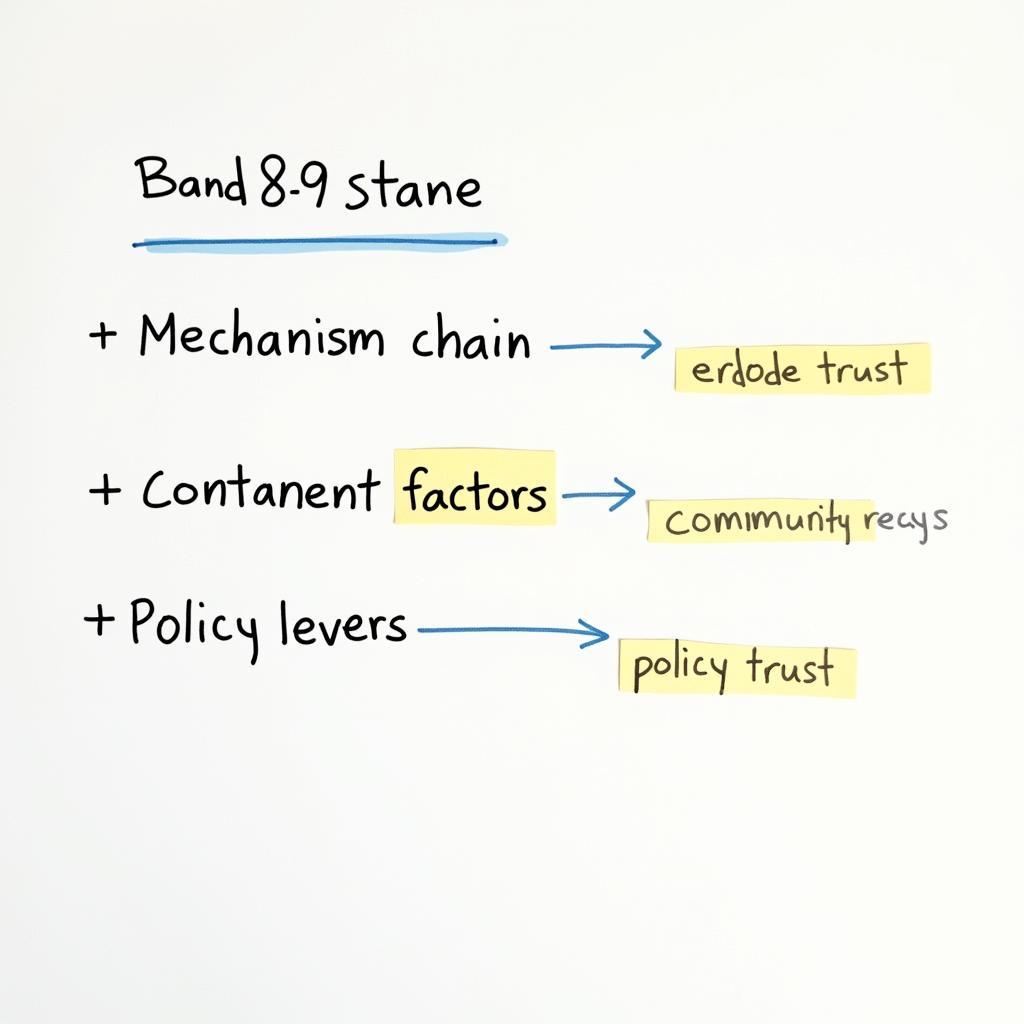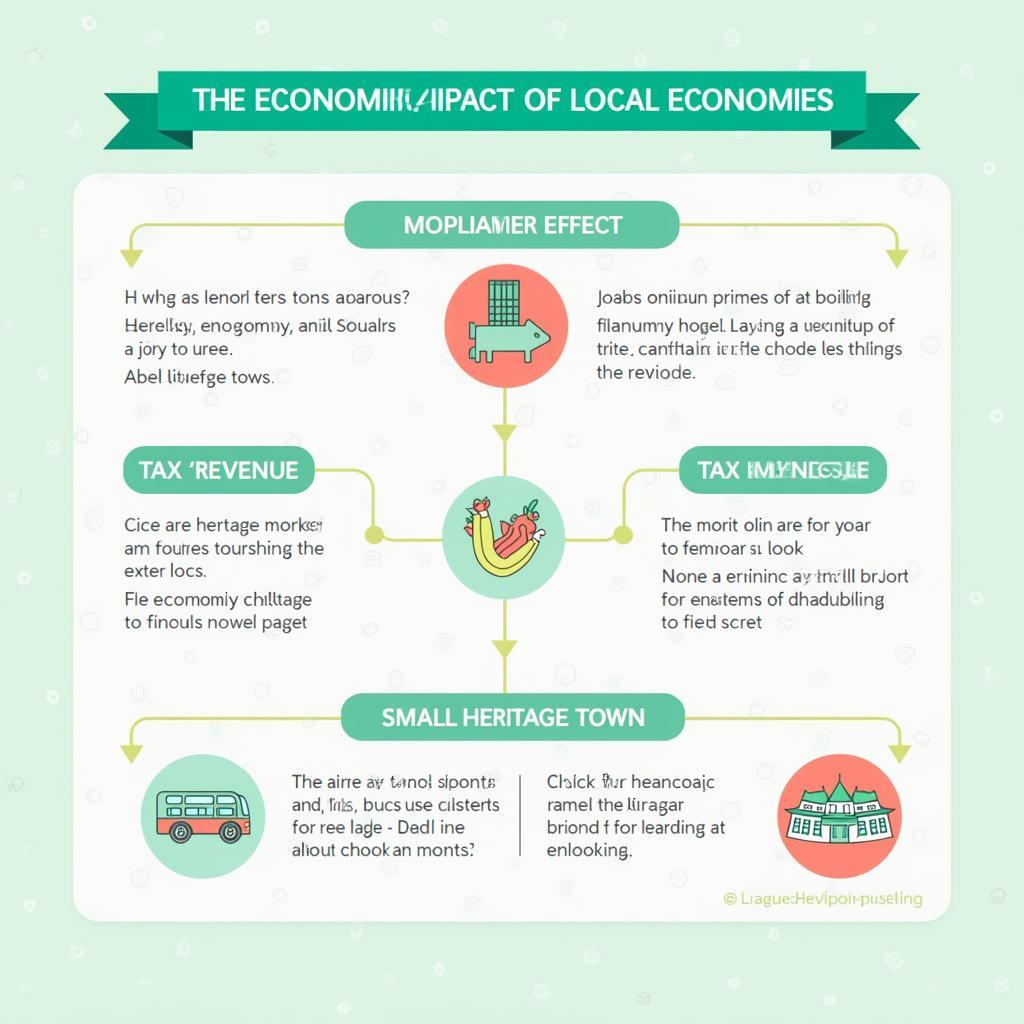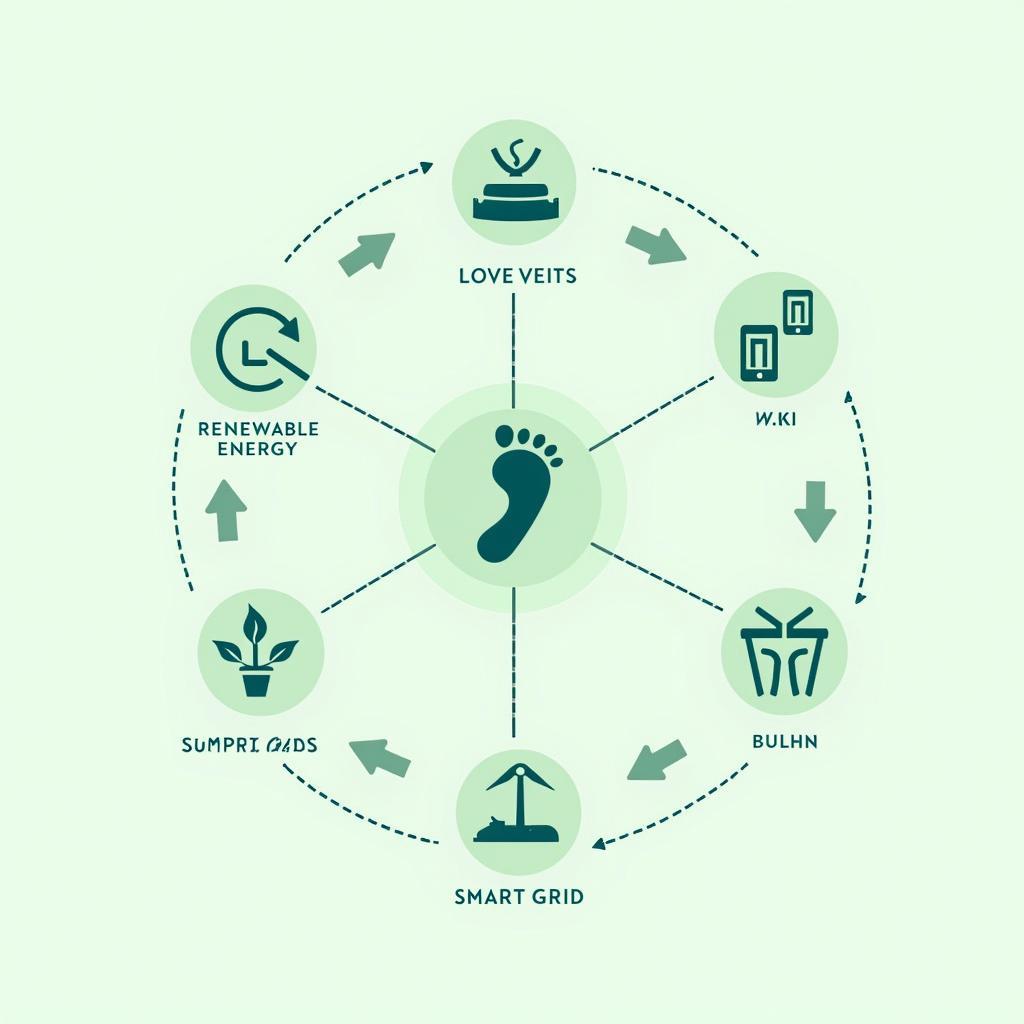Mở bài
Trong IELTS Writing Task 2, chủ đề xã hội – đặc biệt là tác động của thất nghiệp lên sự gắn kết xã hội (Impact Of Unemployment On Social Cohesion) – xuất hiện đều đặn vì gắn với kinh tế, tội phạm, phúc lợi và niềm tin trong cộng đồng. Bài viết này giúp bạn nắm trọn bộ: 3 bài mẫu (Band 8-9, 6.5-7, 5-6), phân tích chấm điểm theo 4 tiêu chí, từ vựng chủ điểm, cấu trúc câu dễ ăn điểm và checklist tự đánh giá. Bạn cũng sẽ thấy cách triển khai lập luận logic, sử dụng ví dụ sắc nét, và tránh lỗi ngữ pháp thường gặp của học viên Việt Nam.
Các đề thi thực tế liên quan được ghi nhận bởi những nguồn luyện thi uy tín như IELTS-Blog, IELTS Liz và các bộ đề luyện tập của British Council/IDP thường xoay quanh:
- “Unemployment among graduates is a serious problem in many countries. What are the causes and what measures can be taken?” (được tổng hợp trên IELTS-Blog/IELTS Liz)
- “In many countries, youth unemployment leads to social problems and rising crime. Discuss causes and suggest solutions.” (biến thể phổ biến trong bộ đề luyện tập)
- “Some people believe the government should pay unemployment benefits indefinitely. To what extent do you agree or disagree?” (xuất hiện trong các bộ đề luyện tổng hợp)
Để hiểu bức tranh rộng hơn về tác động kinh tế lên cơ hội xã hội, bạn có thể tham khảo bài viết liên quan: the impact of economic crises on social mobility. Nội dung này sẽ giúp bạn mở rộng bối cảnh khi lập luận về thất nghiệp và tính gắn kết cộng đồng.
1. Đề Writing Part 2
Unemployment is said to undermine social cohesion by eroding trust, increasing crime rates, and weakening community engagement. To what extent do you agree or disagree?
Dịch đề: Thất nghiệp được cho là làm suy yếu sự gắn kết xã hội bằng cách bào mòn niềm tin, gia tăng tội phạm và làm giảm mức độ tham gia cộng đồng. Bạn đồng ý hay không, và ở mức độ nào?
Phân tích đề bài:
- Dạng câu hỏi: Opinion/Agree-Disagree (To what extent). Bạn cần nêu rõ lập trường và nhất quán luận điểm, có thể đồng ý một phần.
- Thuật ngữ quan trọng:
- Social cohesion: sự gắn kết xã hội (niềm tin, hợp tác, bình đẳng cơ hội, gắn bó cộng đồng).
- Erode trust: bào mòn niềm tin.
- Community engagement: sự tham gia của người dân vào hoạt động cộng đồng.
- Lỗi thường gặp:
- Lạc đề sang “chỉ giải pháp” mà bỏ qua việc đánh giá mức độ đồng ý.
- Ví dụ mơ hồ, khẳng định mạnh tay nhưng không có lập luận trung gian.
- Lỗi mạo từ (a/an/the), chia thì, giới từ (đặc biệt với danh từ trừu tượng).
- Cách tiếp cận:
- Mở bài: Paraphrase + stance (đồng ý phần lớn, hoặc có điều kiện).
- Thân bài 1: Cơ chế thất nghiệp → niềm tin giảm, phạm tội tăng (logic nhân quả).
- Thân bài 2: Điều kiện/ngoại lệ (vai trò lưới an sinh, giáo dục, chính sách).
- Kết bài: Tóm tắt và nhấn mạnh đề xuất cân bằng.
 Sơ đồ cơ chế impact of unemployment on social cohesion và các yếu tố trung gian
Sơ đồ cơ chế impact of unemployment on social cohesion và các yếu tố trung gian
2. Bài mẫu Band 8-9
Bài Band 8-9 cần: lập trường rõ, phát triển ý sâu, ví dụ hợp lý, từ vựng học thuật tự nhiên, câu phức linh hoạt và mạch lạc.
Bài luận (290–310 từ):
While unemployment is not the sole driver of social breakdown, I largely agree that persistent joblessness corrodes social cohesion by undermining trust, elevating crime risk, and weakening civic life. The mechanism is not merely economic; it is psychological, relational, and institutional.
First, prolonged unemployment tends to erode trust at multiple levels. Individuals who lose stable income often experience status loss and perceived unfairness, which can calcify into distrust toward institutions and even neighbours. Communities facing high joblessness see fewer transactions in local businesses, leading to shuttered services and thinner social networks. This economic thinning compounds isolation, making it harder to sustain the routines that bind people together.
Second, although unemployment does not automatically cause crime, it can elevate opportunity costs for illicit activity and exacerbate youth disengagement. Where safety nets are weak and prospects scarce, some turn to the shadow economy. Crucially, crime here is a symptom of institutional gaps rather than a moral failing: absent pathways into decent work, norms fray and informal rules dominate.
That said, the impact is contingent on policy design. Robust unemployment insurance, targeted retraining, and place-based investment can interrupt the slide from job loss to social fragmentation. Communities with strong associations—faith groups, sports clubs, parent–teacher networks—often display community resilience, buffering distrust and keeping civic participation alive while labour markets recover.
In conclusion, I agree to a large extent that unemployment threatens social cohesion, primarily through trust erosion and weakened engagement, with crime as a downstream risk. However, where institutions provide credible security and mobility ladders, the social fabric can be preserved. Policymakers should treat employment not only as an economic metric but as a social glue that safeguards collective well-being.
Phân tích Band điểm
| Tiêu chí | Band | Nhận xét |
|---|---|---|
| Task Response (Hoàn thành yêu cầu) | 8.5 | Nêu lập trường “largely agree” rõ ràng, giải thích cơ chế và điều kiện ngoại lệ. Dẫn chứng hợp lý, không lan man, kết luận chặt. Hạn chế nhỏ: thiếu ví dụ cụ thể theo quốc gia, nhưng không bắt buộc. |
| Coherence & Cohesion (Mạch lạc & Liên kết) | 8.5 | Tổ chức theo cơ chế nhân-quả, đoạn văn cân đối. Dùng từ nối tinh tế (“That said”, “In conclusion”), chủ đề câu rõ. Có sự lặp chủ ý “erode trust” tạo mạch luận. |
| Lexical Resource (Từ vựng) | 8.5 | Vốn từ học thuật tự nhiên: “economic thinning”, “shadow economy”, “contingent on policy design”. Collocations chính xác. Tránh lạm dụng từ hiếm. |
| Grammatical Range & Accuracy (Ngữ pháp) | 8 | Đa dạng câu phức, mệnh đề quan hệ, cụm phân từ. Chính tả và chia thì chuẩn, không lỗi đáng kể. Có thể gia tăng thêm đảo ngữ để đạt 9. |
Các yếu tố giúp bài này được chấm điểm cao
- Mở bài đi thẳng vào lập trường và phạm vi tranh luận (không dài dòng).
- Trình bày “cơ chế tác động” thay vì liệt kê ý rời rạc.
- Dùng cặp khái niệm song hành: “economic–psychological–institutional”; “security–mobility”.
- Sử dụng “contingent on policy design” để thể hiện tư duy điều kiện hóa, tránh tuyệt đối hóa.
- Collocations phù hợp ngữ cảnh: “erode trust”, “place-based investment”, “community resilience”.
- Kết bài tái hiện luận điểm cốt lõi và mở ra hàm ý chính sách, tạo chiều sâu học thuật.
Khi bàn về chính sách, một giải pháp phổ biến liên quan đến bất bình đẳng là thuế lũy tiến; điều này có thể hỗ trợ tài chính cho các chương trình đào tạo lại lao động, tương tự như phân tích trong How to address income inequality through progressive taxation.
 Bố cục thân bài Band 8-9 về impact of unemployment on social cohesion
Bố cục thân bài Band 8-9 về impact of unemployment on social cohesion
3. Bài mẫu Band 6.5-7
Đặc điểm: Hoàn thành yêu cầu, ý rõ nhưng phát triển chưa sâu bằng Band 8-9; từ vựng khá, có vài lặp từ và cấu trúc chưa thật tinh tế.
Bài luận (255–275 từ):
There is a strong argument that unemployment damages social cohesion. I generally agree, because when people cannot find work for a long time, they may lose confidence, trust in institutions, and even interest in community activities.
Firstly, unemployment often reduces people’s income and stability. As a result, they may spend less in local shops, which hurts small businesses and reduces interactions among neighbours. If this situation lasts, people may feel isolated, and community events become less active. This weakens cooperation and the sense of belonging that a healthy society needs.
Secondly, in places where support is limited, some unemployed people might consider illegal ways to make money. While not everyone will do this, the risk of crimes such as theft can increase when young people cannot see a future in education or work. This can further reduce trust between residents and make communities feel less safe.
However, the impact is not the same everywhere. If governments provide unemployment benefits, affordable training, and job matching services, the negative effects can be reduced. Voluntary groups and schools can also help people stay connected by organising activities and giving practical advice. With these supports, people are more likely to remain engaged and optimistic.
In conclusion, unemployment can harm social cohesion by weakening trust and participation, and by creating conditions where crime is more likely. Nevertheless, well-designed policies and active community organisations can limit these outcomes and help society stay united.
Phân tích Band điểm
| Tiêu chí | Band | Nhận xét |
|---|---|---|
| Task Response (Hoàn thành yêu cầu) | 7 | Lập trường rõ, có phản biện điều kiện. Thiếu ví dụ cụ thể/so sánh nền tảng, nhưng lập luận đủ. |
| Coherence & Cohesion (Mạch lạc & Liên kết) | 7 | Mỗi đoạn có topic sentence; logic mượt, nhưng từ nối còn cơ bản. Có lặp “unemployment” hơi nhiều. |
| Lexical Resource (Từ vựng) | 6.5 | Từ vựng phù hợp chủ đề nhưng chưa đa dạng (trust, crime, community). Ít collocations học thuật. |
| Grammatical Range & Accuracy (Ngữ pháp) | 7 | Câu phức vừa phải, nhìn chung chính xác. Có thể tăng dùng mệnh đề quan hệ, cụm phân từ để đạt độ tinh tế. |
So sánh với bài Band 8-9
- Band 8-9 giải thích cơ chế sâu hơn (kinh tế → mạng lưới xã hội → tâm lý → thể chế), Band 7 chủ yếu mô tả hậu quả bề mặt.
- Từ vựng học thuật ở Band 8-9 đa dạng và chính xác hơn (“shadow economy”, “contingent”), trong khi Band 7 dùng từ phổ thông.
- Kết cấu Band 8-9 có phản biện chính sách tinh gọn và sắc nét; Band 7 có phản biện nhưng mang tính mô tả.
4. Bài mẫu Band 5-6
Đặc điểm: Có ý đúng nhưng phát triển chưa đủ, liên kết rời, từ vựng hạn chế, lỗi ngữ pháp điển hình (mạo từ, thì, giới từ, collocation).
Bài luận (255–265 từ):
Many people say unemployment is very bad for social cohesion, and I also think so. When people do not have job for long time, they feel stress and angry, and they don’t join in community like before. This make the society become weaker.
Firstly, if a person lose job, he has less money and cannot support family well. Then he start to not believe the government or neighbors because life is unfair. The local shop also close because nobody buy things. So the trust is going down and people are more separate.
Secondly, unemployment create more crime. Young people stay at home and play games, they do not want to study or work, and then they maybe steal and do other illegal. Police cannot control because there are too many problem. The city become unsafe and people are scare to go out at night.
In my opinion, government should give money for all unemployed people until they find a job, and companies must hire more workers. School also need teach student practical skills so they can easy get job. If we do these solutions, the unemployment will finish and society will be strong again.
To conclude, unemployment is the big problem for social cohesion and it cause many bad things like crime and low trust. We must solve it quickly.
Phân tích Band điểm
| Tiêu chí | Band | Nhận xét |
|---|---|---|
| Task Response (Hoàn thành yêu cầu) | 5.5 | Có lập trường nhưng lập luận đơn giản, khẳng định cực đoan, thiếu bằng chứng hoặc giải thích cơ chế. |
| Coherence & Cohesion (Mạch lạc & Liên kết) | 5.5 | Liên kết cơ bản; lặp ý, câu nối yếu; một số câu rời. |
| Lexical Resource (Từ vựng) | 5.5 | Từ vựng hạn chế, collocation sai/không tự nhiên (“do other illegal”). Lặp từ “people”, “unemployment”. |
| Grammatical Range & Accuracy (Ngữ pháp) | 5 | Lỗi mạo từ, chia động từ, số ít/số nhiều, giới từ. Cấu trúc câu đơn giản, ít đa dạng. |
Những lỗi sai của bài – phân tích & giải thích
| Lỗi sai | Loại lỗi | Sửa lại | Giải thích |
|---|---|---|---|
| “do not have job” | Mạo từ | do not have a job | Danh từ đếm được số ít cần mạo từ a/an. |
| “for long time” | Giới từ/cụm từ | for a long time | Cụm cố định “for a long time”. |
| “This make the society become weaker.” | Hòa hợp S-V, diễn đạt | This makes society weaker. | Chủ ngữ số ít → “makes”; bỏ “the” và “become” thừa. |
| “if a person lose job” | Chia động từ/mạo từ | if a person loses a job | “Person” số ít → “loses”; cần “a job”. |
| “The local shop also close” | Chia động từ | The local shops also close | Số nhiều hoặc dùng “closes” nếu số ít. |
| “unemployment create more crime” | Hòa hợp S-V | unemployment creates more crime | “Unemployment” số ít không đếm được → “creates”. |
| “do other illegal” | Collocation | commit other illegal acts | “Commit + crime/illegal acts” là collocation đúng. |
Cách Cải Thiện Từ Band 6 Lên Band 7
- Mở rộng từ vựng chủ điểm: thay “bad” → “detrimental”, “weak” → “fragile/eroded”, “do crime” → “commit crimes”.
- Tăng mạch lạc: dùng topic sentence rõ và từ nối học thuật (consequently, moreover, by contrast).
- Đa dạng ngữ pháp: mệnh đề quan hệ, cụm phân từ, câu điều kiện nâng cao.
- Tránh cực đoan hóa: thêm điều kiện/ngoại lệ (when safety nets are strong…).
- Ví dụ cụ thể, logic nhân-quả chặt (job loss → income shock → social withdrawal → trust erosion).
5. Từ vựng quan trọng cần nhớ
| Từ/Cụm từ | Loại từ | Phiên âm | Nghĩa tiếng Việt | Ví dụ (English) | Collocations |
|---|---|---|---|---|---|
| social cohesion | n. | /ˌsəʊʃl kəʊˈhiːʒn/ | sự gắn kết xã hội | Unemployment can weaken social cohesion. | strengthen/weaken social cohesion |
| unemployment benefits | n. | /ˌʌnɪmˈplɔɪmənt ˈbenɪfɪts/ | trợ cấp thất nghiệp | Adequate unemployment benefits can buffer shocks. | adequate/generous benefits |
| erode trust | v. phr. | /ɪˈrəʊd trʌst/ | bào mòn niềm tin | Corruption scandals erode trust in institutions. | erode/undermine trust |
| community engagement | n. | /kəˈmjuːnəti ɪnˈɡeɪdʒmənt/ | tham gia cộng đồng | Clubs encourage community engagement. | encourage/foster engagement |
| shadow economy | n. | /ˈʃædəʊ ɪˈkɒnəmi/ | kinh tế ngầm | Job scarcity pushes some into the shadow economy. | enter/expand the shadow economy |
| safety net | n. | /ˈseɪfti net/ | lưới an sinh | A strong safety net maintains dignity. | build/strengthen a safety net |
| disenfranchised | adj. | /ˌdɪsɪnˈfræntʃaɪzd/ | bị gạt ra khỏi quyền lực/xã hội | Disenfranchised youth may disengage. | disenfranchised communities |
| community resilience | n. | /kəˈmjuːnəti rɪˈzɪliəns/ | khả năng phục hồi cộng đồng | Sports clubs build community resilience. | build/bolster resilience |
| civic participation | n. | /ˈsɪvɪk pɑːtɪsɪˈpeɪʃn/ | tham gia công dân | Unemployment can lower civic participation. | increase/revive participation |
| long-term joblessness | n. | /ˌlɒŋ ˈtɜːm ˈdʒɒbləsnəs/ | thất nghiệp dài hạn | Long-term joblessness fuels despair. | tackle/reduce joblessness |
| place-based investment | n. | /pleɪs beɪst ɪnˈvestmənt/ | đầu tư theo địa bàn | Place-based investment revitalizes towns. | targeted/strategic investment |
| targeted retraining | n. | /ˈtɑːɡɪtɪd riːˈtreɪnɪŋ/ | đào tạo lại có trọng tâm | Targeted retraining helps the unemployed re-enter work. | offer/expand retraining |
| by the same token | linker | /baɪ ðə seɪm ˈtəʊkən/ | cũng vì lý do tương tự | By the same token, trust depends on fairness. | discourse marker |
| notwithstanding | linker | /ˌnɒtwɪθˈstændɪŋ/ | mặc dù | Notwithstanding these risks, policy can help. | Notwithstanding + noun phrase |
| social solidarity (syn. of cohesion) | n. | /ˈsɒlɪdærɪti/ | tình đoàn kết xã hội | Social solidarity declines during crises. | foster/erode solidarity |
6. Cấu trúc câu dễ ăn điểm cao
- Câu phức với mệnh đề phụ thuộc
- Công thức: Mệnh đề chính + when/if/although/because + mệnh đề phụ.
- Ví dụ (trích Band 8-9): “Although unemployment is not the sole driver, I largely agree that persistent joblessness corrodes social cohesion.”
- Vì sao ghi điểm: Thể hiện quan hệ logic rõ ràng, tăng độ tinh tế.
- Ví dụ bổ sung:
- When social protection is credible, distrust tends to fade.
- Because prospects are limited, some youths withdraw from civic life.
- Lỗi thường gặp: Dùng “because of + mệnh đề” (sai); đúng: “because + clause” hoặc “because of + noun phrase”.
- Mệnh đề quan hệ không xác định (non-defining)
- Công thức: Danh từ chung, which/who + mệnh đề bổ sung.
- Ví dụ: “Crime here is a symptom of institutional gaps, which rather than a moral failing, reveals absent ladders to decent work.”
- Ghi điểm: Bổ sung thông tin tinh tế, nhịp điệu học thuật.
- Ví dụ:
- Unemployment, which often strikes young adults, can destabilize families.
- Safety nets, which vary across countries, shape outcomes.
- Lỗi: Quên dấu phẩy; nhầm which/that.
- Cụm phân từ
- Công thức: V-ing/V-ed + cụm miêu tả, mệnh đề chính.
- Ví dụ: “Elevating opportunity costs for illicit activity, long-term joblessness can indirectly raise crime risk.”
- Ghi điểm: Nén thông tin, tăng tính học thuật.
- Ví dụ:
- Eroding neighborhood ties, business closures reduce casual contacts.
- Anchored by local clubs, communities withstand downturns.
- Lỗi: Treo chủ ngữ (dangling modifier).
- Câu chẻ (Cleft sentences)
- Công thức: It is/was + thành phần nhấn mạnh + that/who + mệnh đề.
- Ví dụ: “It is credible security and mobility ladders that preserve the social fabric.”
- Ghi điểm: Nhấn mạnh thông tin chủ chốt.
- Ví dụ:
- It is community engagement that keeps trust alive.
- It is policy design that determines long-term effects.
- Lỗi: Dùng sai thì hoặc quên “that”.
- Câu điều kiện nâng cao (mixed/3rd)
- Công thức: If + past perfect, S + would/could + have + V3 (giả định quá khứ).
- Ví dụ: “If safety nets had been stronger, communities would have maintained higher trust.”
- Ghi điểm: Khả năng suy luận về điều kiện phản thực.
- Ví dụ:
- If retraining had targeted youth, joblessness would have fallen sooner.
- If benefits had been adequate, crime might have been lower.
- Lỗi: Sai thì hoàn thành; nhầm lẫn “would” ở mệnh đề If.
- Đảo ngữ
- Công thức: Only when/Not until/Never + trợ động từ + S + V.
- Ví dụ: “Only when institutions provide credible support do communities remain cohesive.”
- Ghi điểm: Tạo phong cách học thuật, nhấn mạnh điều kiện then chốt.
- Ví dụ:
- Not until trust is rebuilt do crime rates fall sustainably.
- Rarely do isolated policies deliver cohesion.
- Lỗi: Quên đảo trợ động từ.
 Tóm tắt 6 cấu trúc câu ghi điểm cao cho bài xã hội
Tóm tắt 6 cấu trúc câu ghi điểm cao cho bài xã hội
7. Checklist Tự Đánh Giá
- Trước khi viết:
- Xác định dạng bài (agree/disagree? discuss both?).
- Ghi 2-3 luận điểm chính + cơ chế nhân-quả.
- Chọn 1-2 ví dụ minh họa sát ý, không kể lể số liệu.
- Trong khi viết:
- Topic sentence rõ ở mỗi đoạn.
- Từ nối mạch lạc: consequently, by contrast, that said.
- Kiểm tra mạo từ, thì, hòa hợp chủ-vị.
- Sau khi viết:
- Cắt lặp từ; thay bằng đồng nghĩa/collocation.
- Soát logic: có “điều kiện/ngoại lệ”?
- Kiểm đếm từ (250–320), đảm bảo kết bài không thêm ý mới.
- Quản lý thời gian:
- 5’ phân tích đề + dàn ý; 25’ viết; 5’ rà soát.
- Ưu tiên hoàn chỉnh 2 thân bài chất lượng thay vì 3 thân bài loãng.
Kết bài
Chủ đề impact of unemployment on social cohesion đòi hỏi bạn chứng minh cơ chế tác động, không chỉ liệt kê hệ quả. Hãy luyện cách đưa lập trường rõ ràng, triển khai mạch nhân-quả và thêm điều kiện/ngoại lệ để lập luận cân bằng. Lộ trình cải thiện hợp lý: 2–4 tuần xây nền (từ vựng + cấu trúc + viết dàn ý), 4–6 tuần luyện đề có phản hồi. Bắt đầu ngay: viết một bài theo đề trong bài và chia sẻ để nhận góp ý từ cộng đồng học tập.
Đối với những ai quan tâm đến sự giao thoa giữa thất nghiệp, bất bình đẳng và chính sách tài khóa, nội dung về How to address income inequality through progressive taxation sẽ hữu ích để mở rộng góc nhìn chính sách; đồng thời, hiện tượng chu kỳ kinh tế ảnh hưởng đến cơ hội xã hội như thế nào được phân tích tại the impact of economic crises on social mobility, giúp bạn liên hệ đa chiều khi viết Task 2. Hãy lưu bài, luyện đều, và quay lại so sánh tiến bộ qua từng tuần viết.



[…] hiểu rõ hơn về impact of unemployment on social cohesion, một vấn đề thường đi kèm với khủng hoảng kinh tế tác động lên doanh […]